Rosa ready to renew double act with Nibali at Liege-Bastogne-Liege
Former mountain biker emerging from the shadows of team leaders
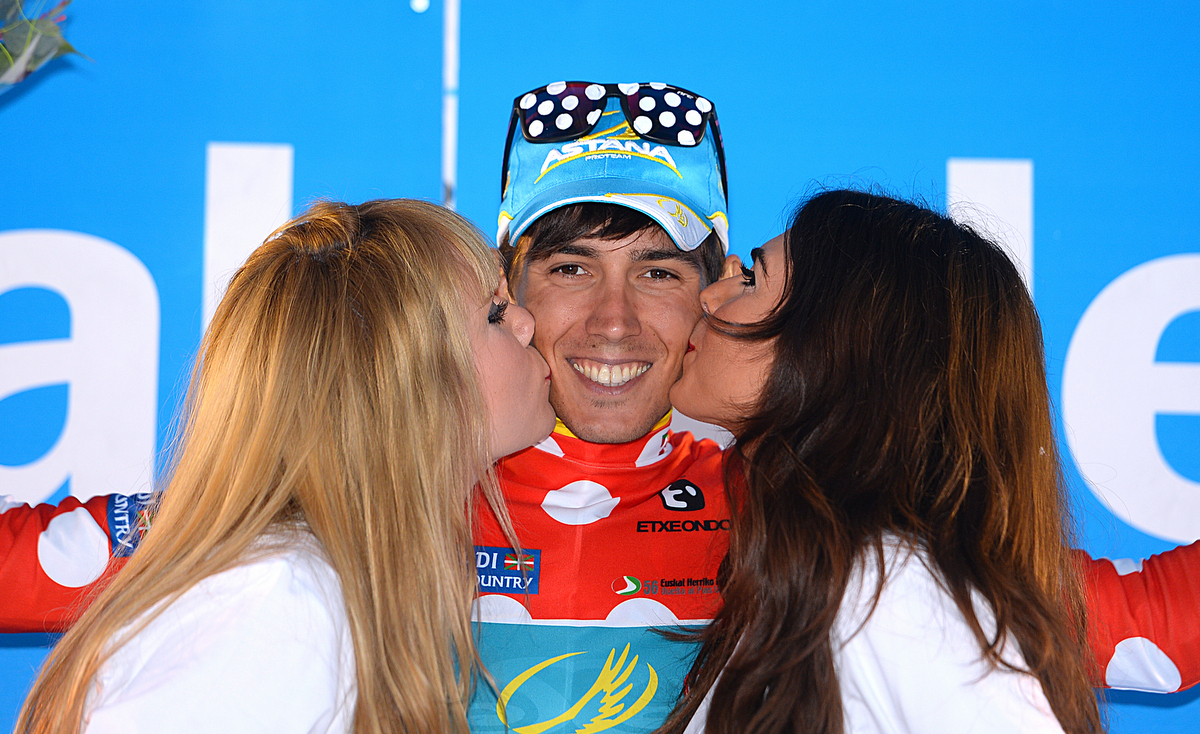
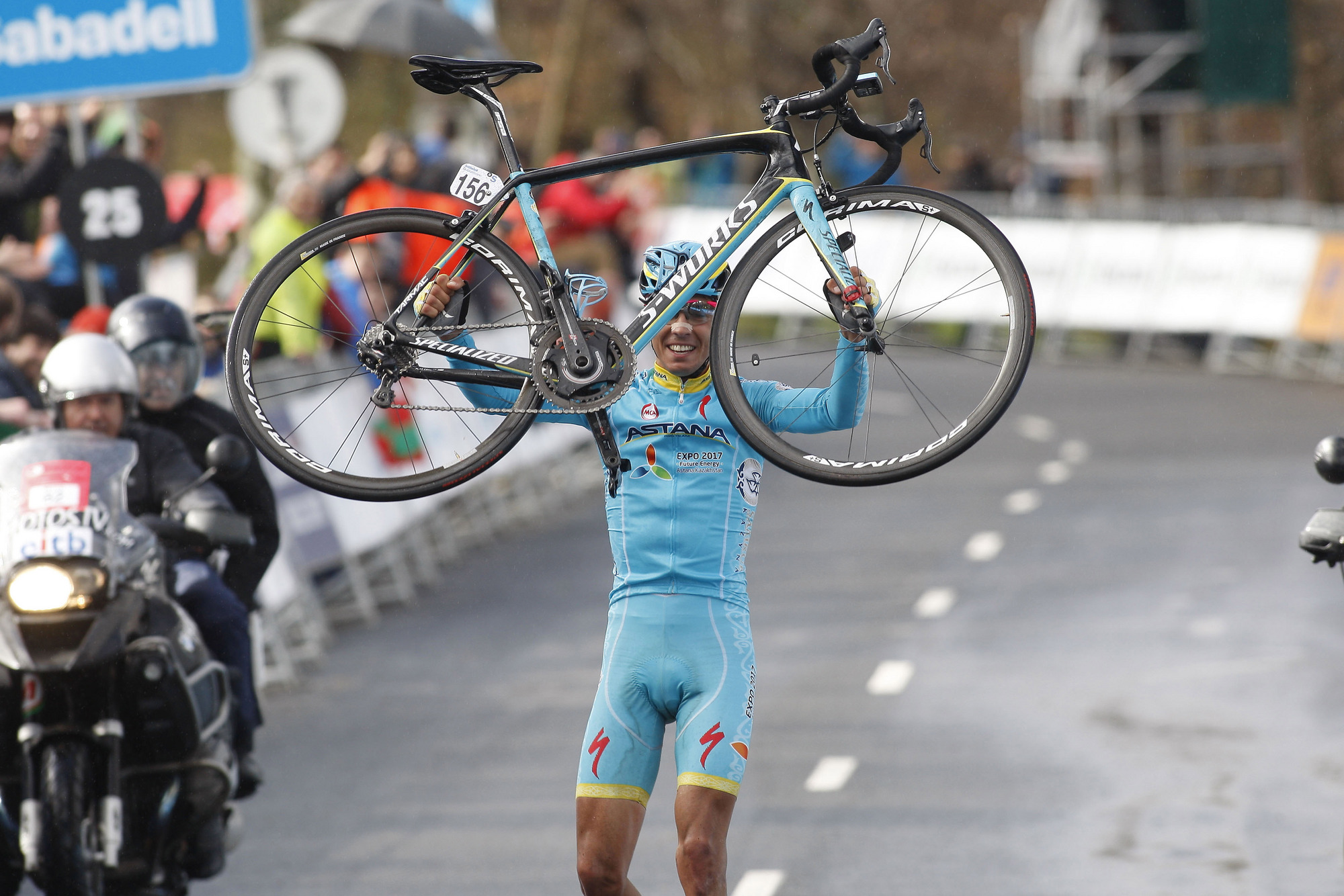
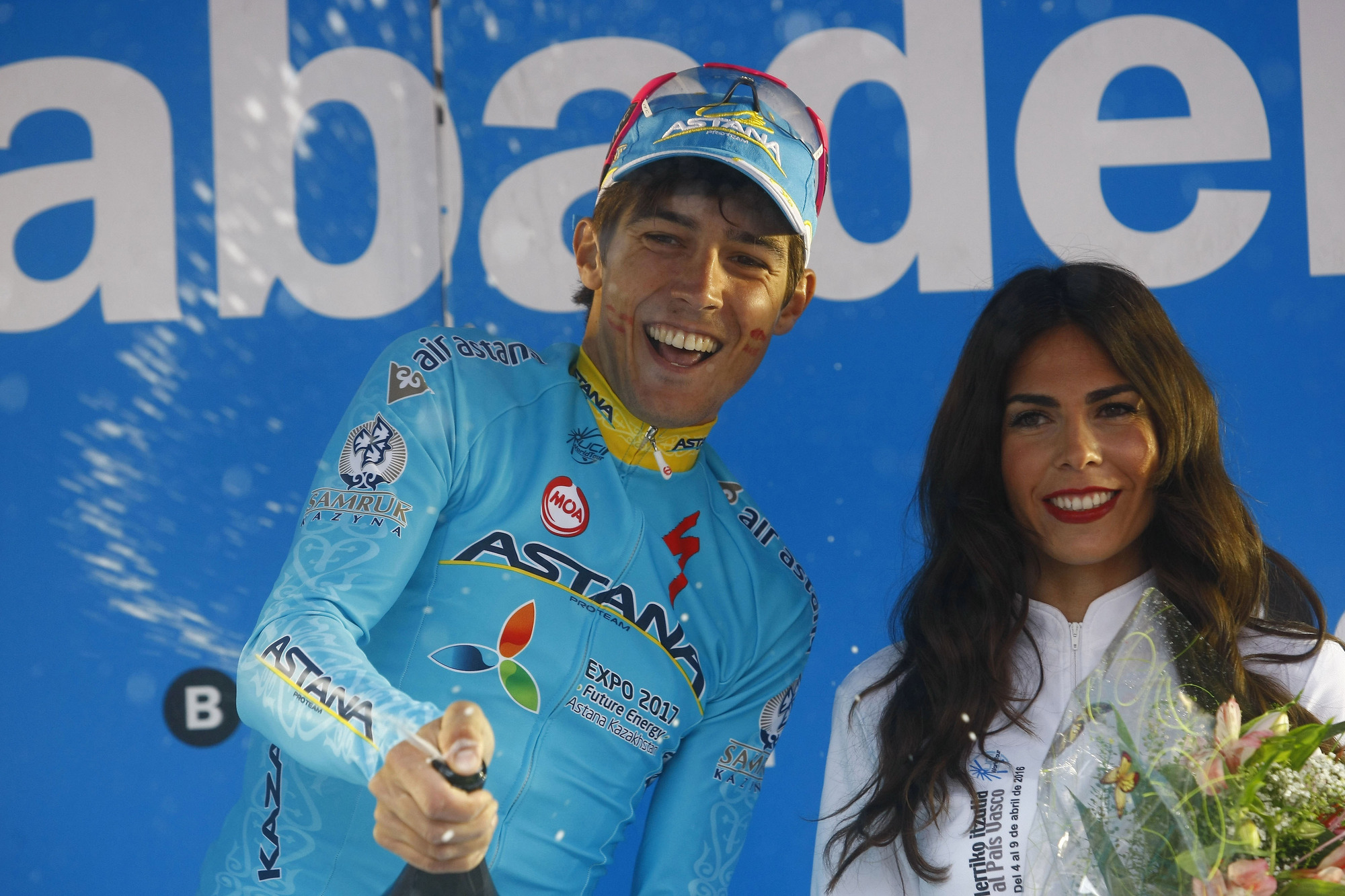
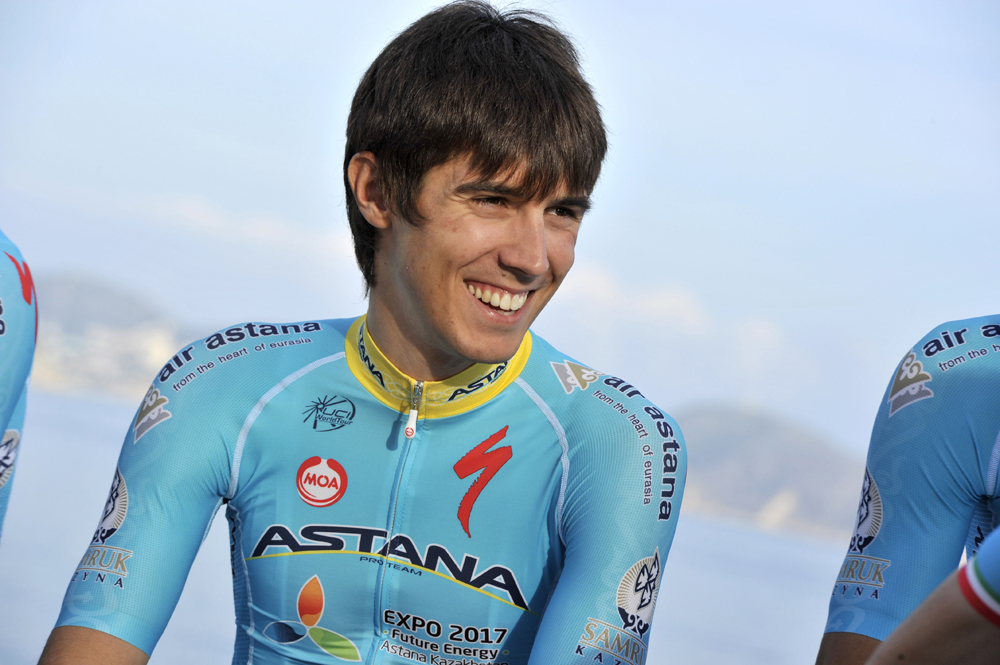
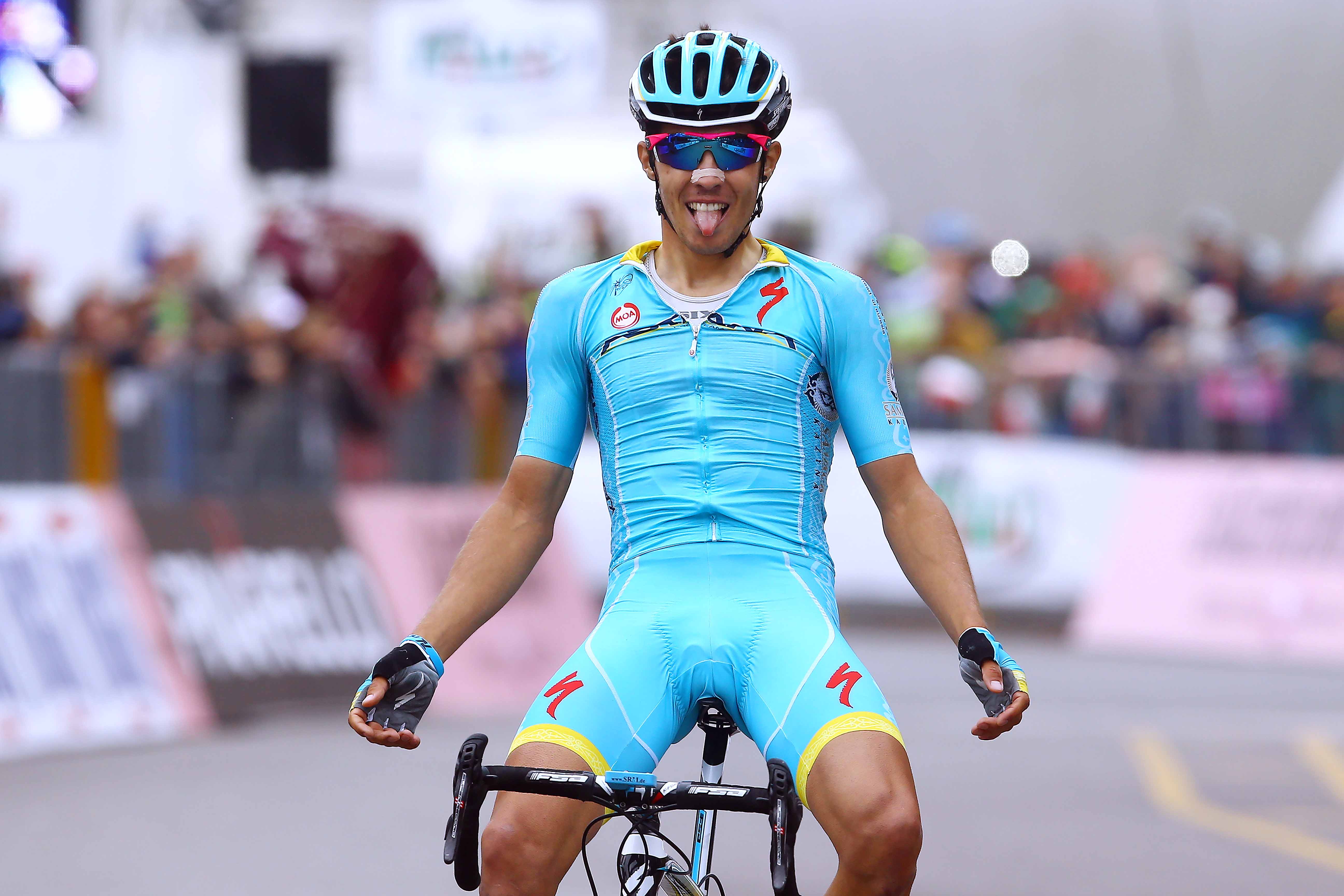
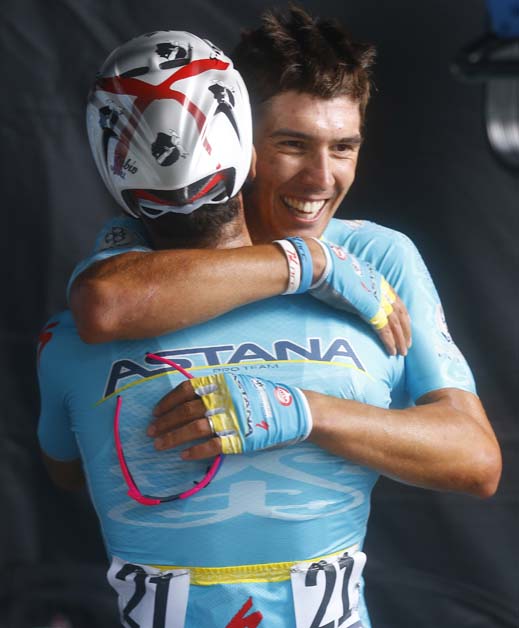
Even without the injured Fabio Aru, Astana will be able to call on a redoubtable double act at Liège-Bastogne-Liège on Sunday after all. When Vincenzo Nibali jets north from the Giro del Trentino at the weekend for his latest tilt at La Doyenne, he will renew acquaintances with Diego Rosa, who played such a decisive part in his cathartic victory at the Tour of Lombardy last October.
Rosa has been a friend of Aru since they raced together as amateurs Olivano Locatelli's Palazzago team in 2012, and, as expected, he slotted into the Sardinian's working group, rather than Nibali's, when he joined Astana from Androni at the beginning of last season.
The former mountain biker duly went on to be a mainstay of Aru's supporting cast at the Giro d'Italia and again during his winning effort at the Vuelta a España, but he showcased his adaptability by laying the groundwork for Nibali on the Civiglio in the finale in Lombardy the following month.
"In the finale of Lombardy, I was riding the way I normally would ride for Fabio and then at a certain point, Vincenzo just pulled me up and said: ‘No, not like that. I'm not Fabio, let's do things a bit differently.' But I only needed a moment to figure it out," Rosa told Cyclingnews at the Hotel Malpertuus in Riemst.
"With Fabio, I ride a lot of stage races, whereas I've only really raced with Vincenzo in the Classics. With Fabio, we're often looking to prepare attacks in a certain way. With Vincenzo, we were looking to manage a completely different race situation, so it's difficult to compare. I get on fine with whichever captain I have. I just need to understand what his demands are and then ride accordingly."
With Lieuwe Westra forced out by illness, Rosa was a late addition to Astana's Amstel Gold Race line-up, fielding the call to arms just as he was preparing to set out on a training ride at the weekend. He performed solidly in his debut Amstel Gold Race, placing 22nd, in the group of favourites that came in four seconds down on winner Enrico Gasparotto, though he explained that the punchy terrain was not to his liking.
"I was up there in the front group but it's not really race for me. You always get to the finale with a big group and the Cauberg is too explosive for a climber with my characteristics. You just do what you can in a race like that," Rosa said, adding that without Aru, Astana are essentially lacking a leader for Flèche Wallonne on Wednesday.
Get The Leadout Newsletter
The latest race content, interviews, features, reviews and expert buying guides, direct to your inbox!
"I think I can be up there at the front, but in the finale where these races are decided, you need to be more explosive and that's a quality I lack to be honest. I'm not fast enough to get a result. Liège is the only one that's a bit more open for climbers. A rider with staying power can win there, he doesn't necessarily need to be quick. But at Flèche and Amstel, you have to do a five-minute anaerobic effort at the end…"
For the majority of Rosa's first three years in the peloton, his stand-out performances came in stage races and the high mountains, but his purple patch in the closing weeks of the 2015 campaign, when he claimed his first professional victory at Milan-Turin and then helped himself to fifth at the Tour of Lombardy, showcased his ability in the Classics.
"The thing is, there aren't many one-day races in a season that are suited to me, so I'm naturally inclined towards stage races," Rosa said. "You can't compare something like the Cauberg to Superga at the end of Milan-Turin, they're completely different climbs."
There is, of course, one additional single-day event on Rosa's radar in 2016, namely the Rio Olympics, which come just after he makes his Tour de France debut in support of Aru in July. Given the tough parcours and his past exploits at the side of both Aru and Nibali, Rosa seems an obvious contender for a spot on the plane to Rio, though one wonders whether the politics of Italian cycling will allow manager Davide Cassani cram his team with Astana riders.
"I come from mountain biking and for mountain bikers, the Olympics are the biggest event of all, so I really hope I can go there. We'll have to see how the Tour goes, but whoever has the best condition in July should go," Rosa said. "But then again I'm an Astana rider and there are already two Astana riders who are certain to be going…"
Mountain bike
Though 27 years of age, Rosa is in only his fifth full season as a road rider, having been a mountain biker for most of his time in the under-23 category. Despite the path beaten by the likes of Cadel Evans, Ryder Hesjedal and Jean-Christophe Péraud in switching disciplines, Rosa struggled to find an amateur team willing to take him on when he opted to make the change at the beginning of 2012.
"I was turned down by a lot of amateur teams before Locatelli gave me the chance at Palazzago and I think I repaid him. It wasn't easy at the start because you're setting off from zero and starting all over again. I said to myself, I'd do a year on the road, but just one – and if I didn't turn professional, basta, I'd do something else," said Rosa.
While Rosa's atypical background was viewed with a degree of caution on the Italian amateur scene, he believes it has been a blessing to his professional career to set out with so many fewer miles on the clock than his contemporaries.
"It's not a question of what mountain biking gives you so much as what it doesn't take away," he said. "Up until the under-23 category, mountain biking is like a game. There's no trainer, no specific training, no specific diet or so on. You take your bike, you go into the woods and you enjoy yourself.
"Up to my last year as an under-23, I was only doing 15,000 kilometres a year. A normal under-23 on the road would do at least double that. So mountain biking means that you reach the professional ranks a lot fresher. Ok, you might lack that endurance base but you can pick that up by training. I've only being doing big amounts of kilometres for the last four years, so I'm fresher than a lot of other riders who did all of their junior and under-23 racing on the road."
Piedmont
By his own admission, Rosa grew up without a particularly deep interest in following cycling – "I'd watch the big mountain stages but I didn't know all of the riders" – he has since come to appreciate his place in local cycling culture.
Half a century ago, Piedmont was one of the true heartlands of Italian cycling, but over the decades, the number of strong amateur teams – not to mention professional riders – from the region has diminished dramatically. When Rosa, a native of Alba, city of Beppe Fenoglio, Ferrero and truffles, won Milan-Turin last year, he was the first local winner since Franco Balmamion in 1962.
"In winter, I often find myself at functions for Piedmontese riders. I might be there with [Fabio] Felline, but then there's a huge gap back to Zilioli and Balmamion," he said. "I often speak with Italo Zilioli on the telephone, he gives me advice and we talk. It's nice but it's true that there's a gap of 40 years or so for Piemontese cycling. But people in Piedmont are still passionate about cycling. They're just missing someone to follow."
Rosa certainly gained something of a following when he claimed victory on stage 5 of the Tour of the Basque Country to Arrate earlier this month after a solo effort of more than 100 kilometres. He went on the celebrate his win by walking across the finish line with his bike held aloft in the manner of a mountain biker, and found local fans mimicking the gesture as he rode past during the following day's time trial.
"I actually wanted to celebrate like that at Milan-Turin but the gap was too small. I couldn't take the risk of losing my first win in such a stupid way, so I said I'd keep going," Rosa said. "But in the Basque Country I had four minutes to spare, so I could do what I liked."

Barry Ryan was Head of Features at Cyclingnews. He has covered professional cycling since 2010, reporting from the Tour de France, Giro d’Italia and events from Argentina to Japan. His writing has appeared in The Independent, Procycling and Cycling Plus. He is the author of The Ascent: Sean Kelly, Stephen Roche and the Rise of Irish Cycling’s Golden Generation, published by Gill Books.